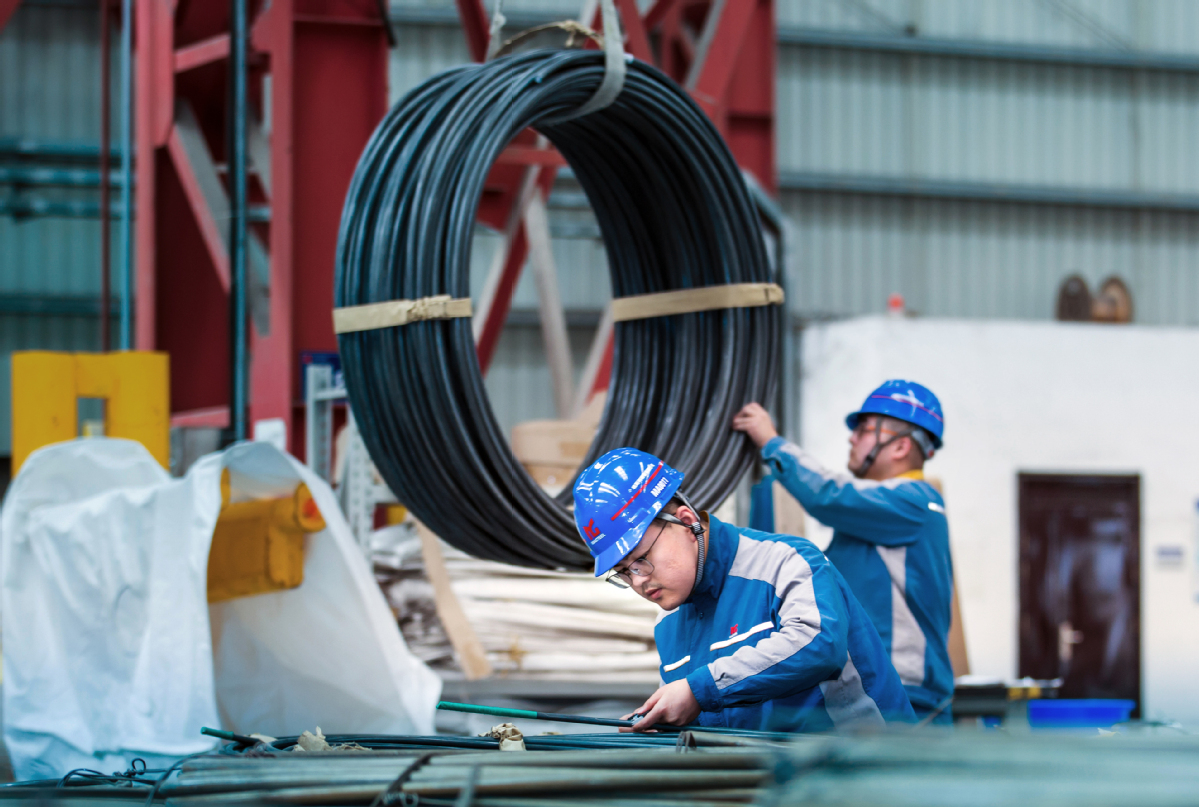Steel companies post higher Q1 earnings


Steel enterprises in China posted a better performance during the first three months of the year, with total profit rising 247.44 percent on a yearly basis to 73.4 billion yuan ($11.32 billion), data from the China Iron and Steel Association showed on Tuesday.
"The steel industry saw sustained growth in enterprise profitability during the first quarter, and the number of loss-making enterprises declined significantly," said Qu Xiuli, vice-chairwoman of the top steel industry association.
Member enterprises of the CISA earned total revenue of more than 1.54 trillion yuan in the first three months, up 52.28 percent on a yearly basis. About 13.63 percent of member enterprises reported losses, which was 13.63 percentage points lower than the same period last year, she said, attributing the better figures partly to last year's low comparison base as a result of the COVID-19.
Data from the association showed that China produced 271 million metric tons of crude steel, up 15.6 percent on a yearly basis. That was also an increase of 17.3 percent compared with the first quarter of 2019.
With the Chinese economy recovering steadily and maintaining stable upward momentum, steel consumption has perked up due to demand recovery in the main downstream industries, data from the association showed.
During the first quarter, actual steel consumption of the main downstream industries increased by 47 percent on a yearly basis.
Steel consumption in the construction and manufacturing sectors grew 49 percent and 44 percent, respectively, on a yearly basis, while consumption of crude steel hit 258.96 million tons, with a year-on-year increase of 15.3 percent.
However, higher raw material prices, especially for iron ore, alongside an increase in logistics costs and environmental protection investments, led to higher production costs for steel enterprises and increased pressure on them.
China imported 283 million tons of iron ore during the first quarter, up 8 percent from a year earlier, while the average import price was $150.79 per ton, up 64.51 percent year-on-year.
Luo Tiejun, vice-chairman of the CISA, said iron ore supplies have been improving as production increased and the pandemic eased. The current iron ore price rise is largely due to speculation, he said.
According to Luo, under the current pricing mechanism, iron ore prices are to a large extent determined by the producers rather than market forces.
Qu said more efforts will be made to reduce China's reliance on iron ore imports so as to curb the price surges. Those efforts include strengthening domestic and foreign iron ore mining.
According to her, the surge in iron ore import prices, the expansion of domestic demand, as well as international market recovery and global commodity price surges have combined to cause domestic steel price growth since the beginning of the year, although the price hikes are lower than those in the international market.
Steel price increases have exerted pressure on the profitability of some downstream industries, and may also attract investments and speculation that will disturb the country's overcapacity-cutting campaign, which is not desirable for the healthy development of the steel industry, she said.




































